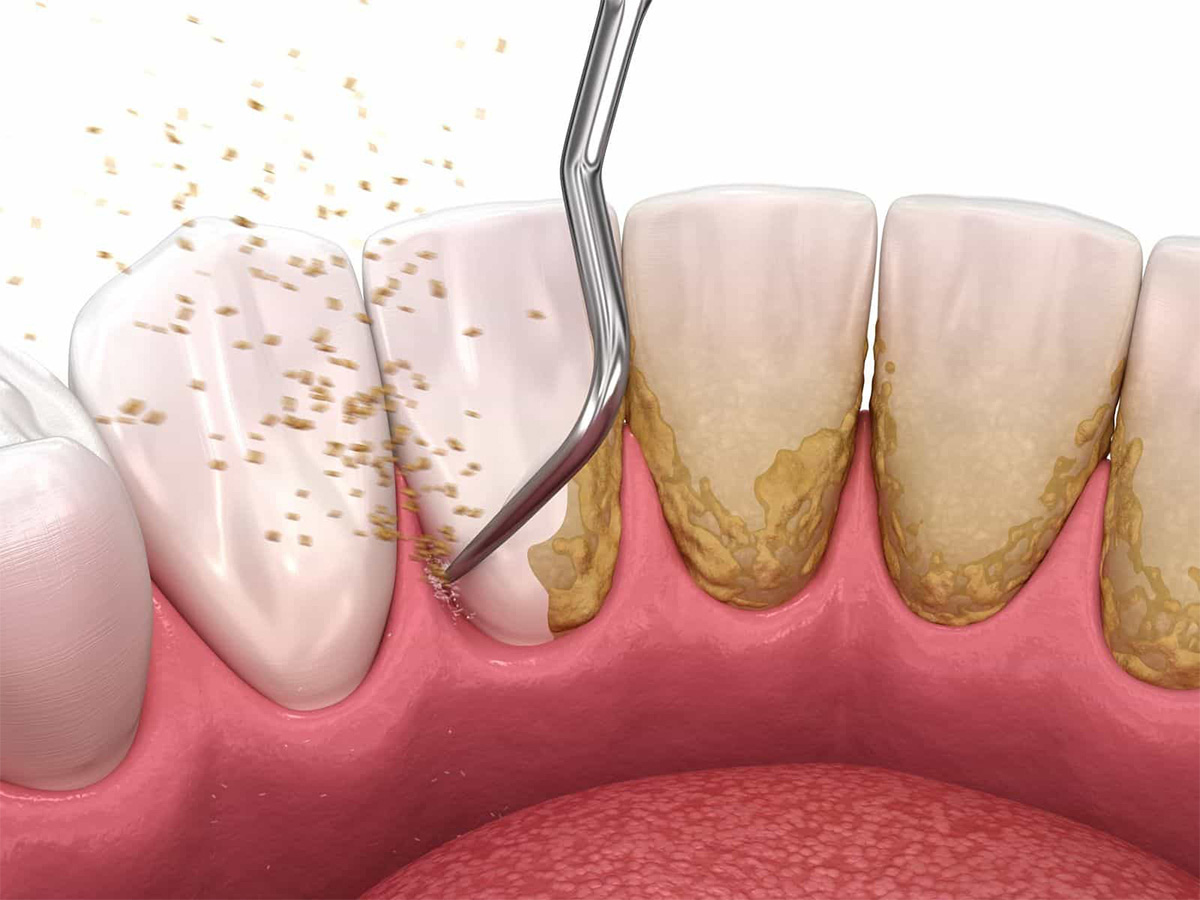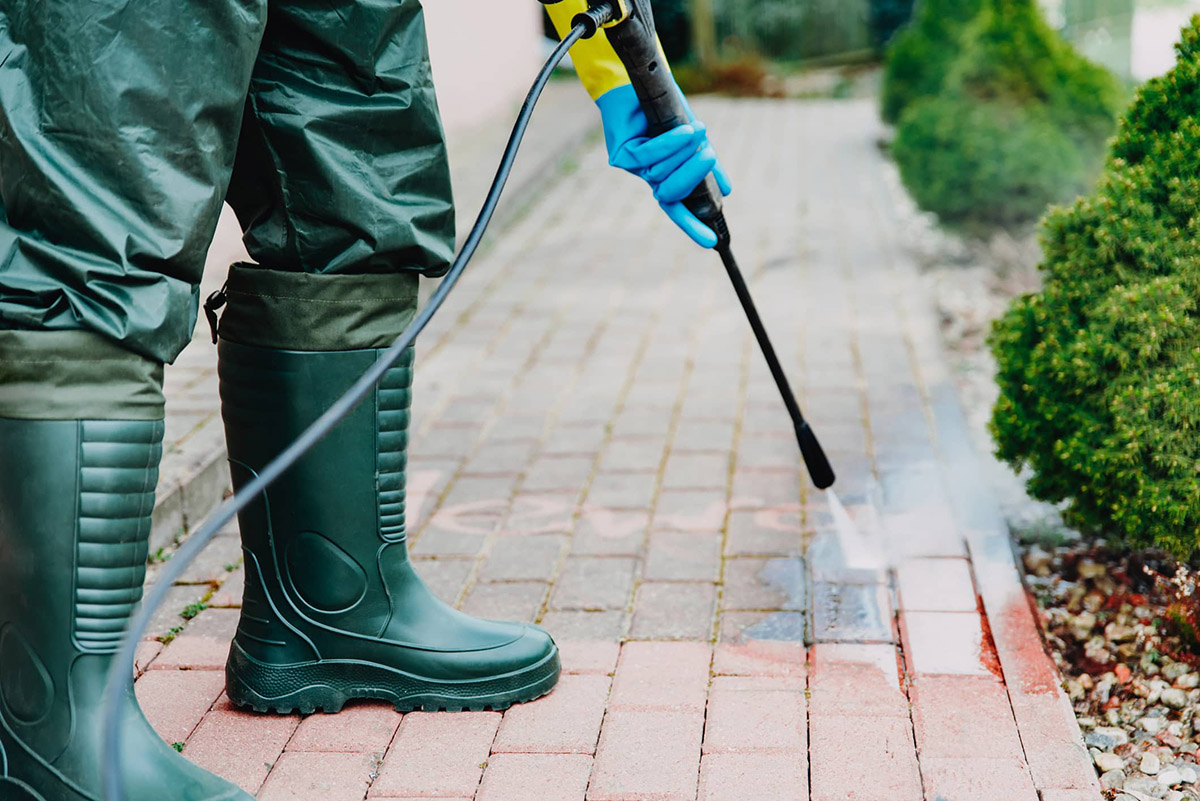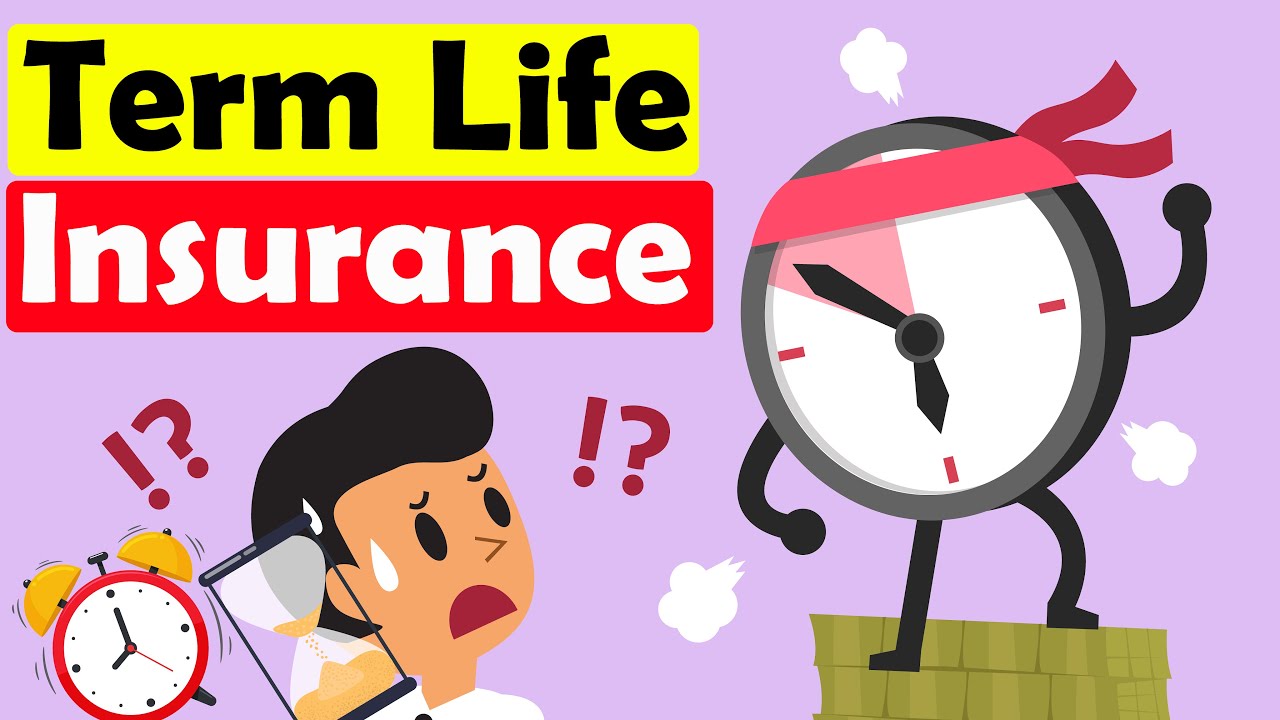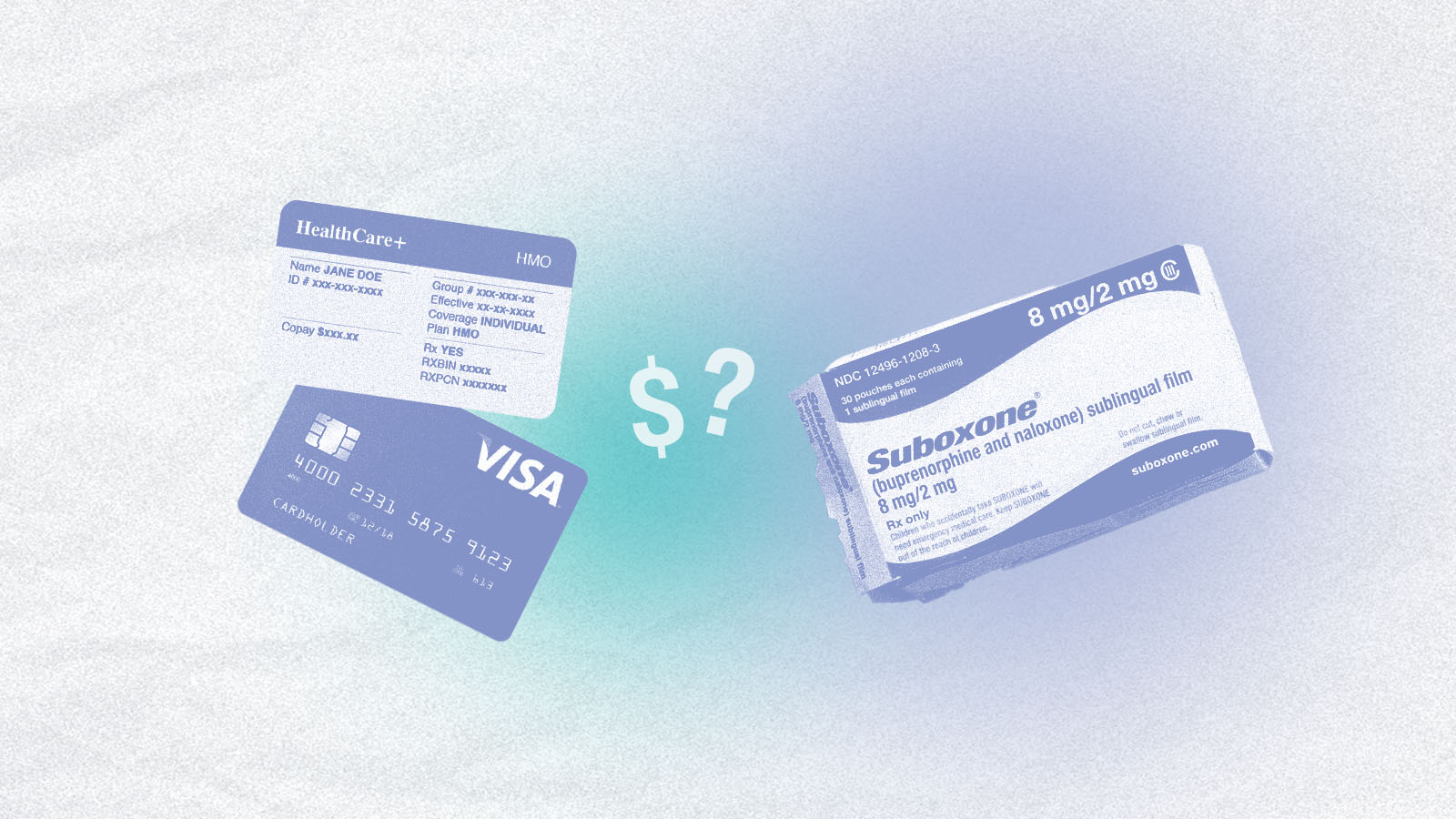Home>Finance>How Much Is Insurance For The Cleaning Business?
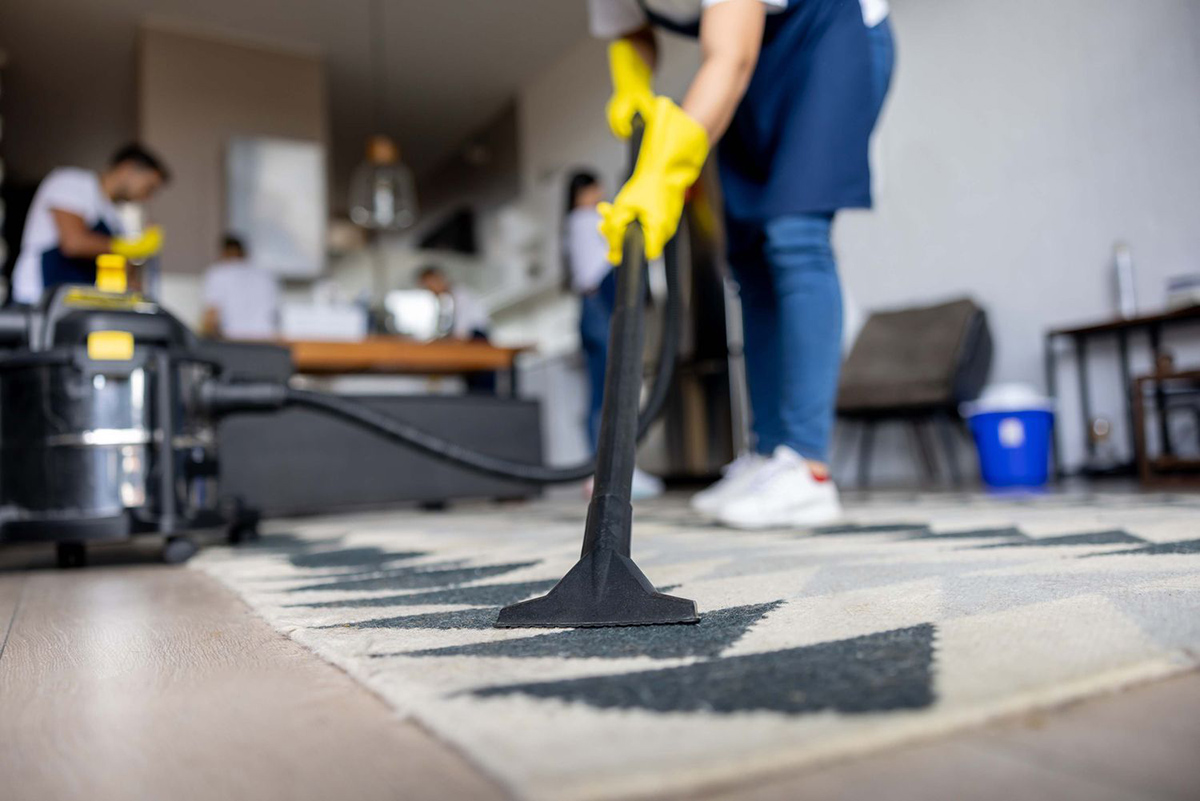

Finance
How Much Is Insurance For The Cleaning Business?
Published: November 15, 2023
Looking for insurance coverage for your cleaning business? Find out how much it will cost and get your finances in order with our expert advice and tips.
(Many of the links in this article redirect to a specific reviewed product. Your purchase of these products through affiliate links helps to generate commission for LiveWell, at no extra cost. Learn more)
Table of Contents
- Introduction
- Factors that Determine Insurance Costs
- General Liability Insurance
- Workers’ Compensation Insurance
- Commercial Property Insurance
- Business Auto Insurance
- Umbrella Insurance
- Bond Insurance
- Other Insurance Options for Cleaning Businesses
- How to Get Insurance Quotes
- Tips for Saving Money on Insurance
- Conclusion
Introduction
Starting a cleaning business can be a rewarding venture, offering the opportunity for independent work and financial success. However, like any business, it is important to ensure that you have the proper insurance coverage to protect yourself and your business from potential risks and liabilities.
Insuring your cleaning business is essential to safeguarding your financial future. Accidents can happen, and without adequate insurance coverage, you could be held personally liable for damages or injuries that occur on the job. Additionally, having insurance coverage can help you build trust and credibility with potential clients, as it shows your commitment to professionalism and responsible business practices.
The cost of insurance for a cleaning business can vary depending on several factors, including the size of your business, the type of cleaning services you provide, the location of your business, and your claims history. Understanding the different types of insurance that are available for your cleaning business and how these factors can impact your insurance costs is crucial to making an informed decision about your insurance coverage.
In this article, we will explore the various types of insurance coverage that are essential for a cleaning business, as well as factors that can affect insurance costs. We will also provide tips for obtaining insurance quotes and ways to save money on insurance premiums. By the end of this article, you will have a better understanding of the insurance options available and how to protect your cleaning business.
Factors that Determine Insurance Costs
When it comes to insurance costs for your cleaning business, several key factors can influence the amount you will pay for coverage. Understanding these factors can help you make informed decisions about the type and amount of insurance you need. Here are some of the main factors that will determine your insurance costs:
- Type of Cleaning Services: The specific type of cleaning services you offer can impact your insurance costs. For example, if you focus on janitorial services for commercial properties, the risks and potential liabilities may differ from residential cleaning services. Insurance providers will consider the nature of your cleaning services when determining your premiums.
- Business Size: The size of your cleaning business can also affect your insurance costs. If you have a larger operation with multiple employees, your insurance premiums may be higher to account for the increased risk and potential liability. On the other hand, if you are a sole proprietor with no employees, your insurance costs may be lower.
- Location: The location of your cleaning business can impact insurance costs. Factors such as the crime rate, local building codes, and the prevalence of natural disasters in your area can influence your premiums. Insurance rates may be higher in areas with higher risks.
- Claims History: Your claims history plays a significant role in determining insurance costs. If you have a history of insurance claims or have been involved in lawsuits related to your cleaning business, insurance providers may view you as a higher risk and charge higher premiums. On the other hand, a clean claims history can help you secure more affordable insurance rates.
- Employee Safety Measures: If you have employees working for your cleaning business, implementing proper safety measures and providing training can help reduce your insurance costs. Insurance providers may offer discounts for businesses that demonstrate a commitment to employee safety through policies, procedures, and training programs.
These are just a few of the factors that can impact the cost of insurance for your cleaning business. Each insurance provider may have their own criteria and underwriting process, so it’s essential to shop around and compare quotes to find the best coverage at a competitive price.
General Liability Insurance
General liability insurance is one of the most important types of insurance for a cleaning business. It provides coverage for bodily injury, property damage, and personal injury claims that may arise during the course of your business operations. This coverage is crucial in protecting your business from potential financial losses resulting from accidents or injuries.
With general liability insurance, you can have peace of mind knowing that you are protected against common risks associated with your cleaning business. For example, if a client slips and falls on a wet floor while you are conducting cleaning services, general liability insurance can cover their medical expenses and any resulting legal claims against your business. Similarly, if you accidentally damage a client’s property, such as breaking a valuable item during the cleaning process, general liability insurance can help cover the cost of repair or replacement.
The cost of general liability insurance for your cleaning business is influenced by various factors, including the size of your business, the specific services you offer, and your claims history. Typically, larger cleaning businesses with more extensive services and higher revenues will pay higher premiums. Additionally, if you have previous claims or legal disputes, you may face higher insurance costs due to the increased perceived risk.
When choosing a general liability insurance policy for your cleaning business, it is important to carefully review the coverage details, including the policy limits, exclusions, and deductibles. Ensure that the policy provides comprehensive coverage for the various risks you may face in your specific line of work. You may also want to consider additional coverages, such as product liability insurance, which can protect you in case a cleaning product you use causes harm or damage.
Obtaining general liability insurance for your cleaning business is a vital step in protecting yourself and your assets. It provides financial security and helps maintain the trust of your clients, demonstrating that you are a responsible and professional business. Remember to review and compare insurance quotes from different providers to find the most suitable coverage at a competitive price.+
Workers’ Compensation Insurance
Workers’ compensation insurance is a critical coverage for cleaning businesses that have employees. It provides benefits to employees who suffer work-related injuries or illnesses, including medical expenses, lost wages, and rehabilitation costs. This insurance helps protect both your employees and your business from the financial burden that can arise from workplace accidents or injuries.
As a cleaning business owner, you have a duty to ensure a safe working environment for your employees. However, accidents can still happen, and workers’ compensation insurance is designed to provide support in these situations. If an employee is injured while performing their job duties, workers’ compensation insurance will cover their medical expenses and provide a portion of their lost wages, allowing them to recover without bearing the financial burden.
The cost of workers’ compensation insurance for your cleaning business depends on several factors, including the nature of your cleaning services, the number of employees you have, and your claims history. Insurance providers consider the risk associated with your industry and the potential for workplace injuries when determining your premiums. For example, if your cleaning business involves tasks like using heavy machinery or working at heights, your insurance costs may be higher due to the increased risk of accidents.
It’s important to note that workers’ compensation insurance is usually required by law in most states for businesses with employees. Failing to carry workers’ compensation coverage can result in severe penalties and legal consequences. Even if your state does not require it, having workers’ compensation insurance is a responsible business practice and can protect you from financial liabilities in case of workplace injuries.
When obtaining workers’ compensation insurance, make sure to provide accurate information about your employees and the nature of their work. This will help insurance providers accurately assess the risk and provide you with the appropriate coverage. It’s also essential to review your policy regularly to ensure that your coverage remains adequate as your business grows and changes.
By having workers’ compensation insurance, you demonstrate your commitment to the well-being of your employees and protect your business from potential legal and financial challenges. Consider consulting with an insurance professional to ensure that you have the right coverage to meet the specific needs of your cleaning business.
Commercial Property Insurance
Commercial property insurance is a crucial coverage for cleaning businesses that own or lease a physical space for their operations. This type of insurance protects your business property, including the building, equipment, tools, and supplies, from damage or loss due to covered perils, such as fires, theft, vandalism, or natural disasters.
As a cleaning business, your equipment and supplies are essential for your daily operations. Commercial property insurance provides financial protection in case of unexpected events that could cause damage or destruction to your property. For example, if a fire breaks out in your cleaning facility and destroys your equipment and supplies, commercial property insurance can help cover the cost of replacing them.
The cost of commercial property insurance for your cleaning business is influenced by various factors, including the value of your property, the location of your business, the level of security measures in place, and your claims history. Insurance providers will consider the risks associated with your specific location and the type of property you own or lease when calculating your premiums.
When obtaining commercial property insurance, it’s essential to carefully review the coverage provided, including any exclusions or limitations. Some policies may have specific provisions related to the cleaning industry or certain types of equipment. It’s important to ensure that your policy adequately covers the full value of your property and any business interruption expenses you may incur in case of a covered loss.
In addition to protecting your physical property, consider adding coverage for business interruption expenses to your commercial property insurance policy. This coverage can help compensate for lost income and ongoing expenses if your cleaning business is temporarily unable to operate due to a covered event, such as a fire or water damage.
Commercial property insurance is an essential safeguard for your cleaning business, providing financial protection in case of property damage or loss. It allows you to focus on running your business with confidence, knowing that your valuable assets are covered. To ensure you have the right coverage for your specific needs, consult with an insurance professional who can guide you in selecting the appropriate policy and coverage limits.
Business Auto Insurance
If your cleaning business utilizes vehicles for transportation or to carry equipment and supplies, it’s important to have proper business auto insurance to protect your vehicles and the liabilities associated with their use. Business auto insurance provides coverage for accidents, damages, and injuries that occur while using your vehicles for business purposes.
As a cleaning business owner, your vehicles are essential for delivering your services to clients’ locations. Whether you have a single vehicle or a fleet of vans, business auto insurance is necessary to protect yourself, your employees, and your vehicles from potential risks and financial losses.
Business auto insurance typically includes liability coverage, which pays for bodily injury and property damage to others in an accident where you or your employees are at fault. It also includes coverage for physical damage to your vehicles, such as collisions or theft. Additionally, you may have the option to add coverage for uninsured or underinsured motorist protection, roadside assistance, and rental reimbursement.
The cost of business auto insurance for your cleaning business depends on various factors, including the type of vehicles you own, their value, the driving records of your employees, and the coverage limits you select. Insurance providers will assess the risks associated with your vehicles and the likelihood of accidents or damage when determining your premiums.
When obtaining business auto insurance, it’s important to accurately disclose information about your vehicles and their use. This includes the number of vehicles, average annual mileage, and the names and driving records of your employees who will be driving the vehicles. Providing accurate information helps ensure that you have adequate coverage and that your premium is correctly determined.
It’s worth noting that personal auto insurance policies typically do not provide coverage for vehicles used for business purposes. Using personal auto insurance for your cleaning business vehicles can result in denied claims and potential gaps in coverage. Having a dedicated business auto insurance policy ensures that you have the proper coverage specific to your business needs.
By having business auto insurance, you protect yourself, your employees, and your assets in case of accidents or damage involving your vehicles. It’s important to review your policy regularly to ensure it meets your changing needs as your business grows. Consult with an insurance professional to determine the appropriate coverage and policy limits for your cleaning business.
Umbrella Insurance
As a cleaning business owner, protecting yourself from potential lawsuits and claims beyond the limits of your primary insurance policies is crucial. This is where umbrella insurance comes into play. Umbrella insurance provides an extra layer of liability coverage that goes beyond the limits of your general liability, workers’ compensation, and other primary insurance policies.
Umbrella insurance acts as a safety net, offering additional coverage in the event that your primary insurance policy’s limits are exhausted. It provides protection against catastrophic claims or lawsuits that could potentially exceed the coverage limits of your underlying policies. This type of insurance is particularly important for cleaning businesses as they can be exposed to high-risk situations, accidents, or legal disputes.
For example, let’s say your cleaning business is sued for causing extensive damage to a client’s property during a cleaning job, resulting in a substantial claim. If your general liability insurance coverage limit is reached, umbrella insurance can step in to cover the remaining costs, thereby protecting your business and personal assets.
The cost of umbrella insurance for your cleaning business will depend on various factors, including the coverage limits you select, the nature of your business, and your claims history. Typically, the higher the coverage limit you choose, the higher the premium will be. Umbrella insurance is usually available in increments of $1 million or more.
When considering umbrella insurance, it’s important to review your existing insurance policies and their coverage limits. Umbrella insurance is designed to complement your primary policies, so maintaining adequate coverage limits on those policies is crucial. You should also assess your potential risk exposure and the likelihood of significant claims or lawsuits to determine your desired coverage limit for an umbrella policy.
Umbrella insurance is an essential component of comprehensive risk management for your cleaning business. It provides an extra layer of protection and peace of mind by extending the liability coverage limits of your underlying policies. Consult with an insurance professional to evaluate your needs and determine the appropriate coverage amount to ensure your business is adequately protected.
Bond Insurance
Bond insurance, also known as surety bonding, is a specialized type of insurance that offers financial protection to your cleaning business and your clients. It provides a guarantee that you will fulfill your contractual obligations and compensate for any financial losses that may occur due to non-performance or other contractual breaches.
As a cleaning business, you may enter into contracts with clients for long-term or recurring cleaning services. In some cases, clients may require you to have bond insurance as a condition of the contract. Bond insurance serves as a reassurance to your clients that you have the financial means to fulfill your obligations and provide compensation in the event of a breach.
There are various types of bond insurance that may be relevant to your cleaning business. The most common type is a performance bond, which guarantees that you will complete the contracted work according to the agreed-upon terms. This provides peace of mind to your clients, knowing that they are protected financially if you fail to deliver the promised services.
Another type of bond insurance is a payment bond, which ensures that you will pay all subcontractors, suppliers, and laborers involved in the cleaning project. This protects those parties from the risk of non-payment and helps maintain positive relationships within the cleaning industry.
The cost of bond insurance will depend on several factors, including the type and size of the project, the coverage amount required, and your business’s financial stability. Typically, bond insurance premiums are a percentage of the bond amount, ranging from 1% to 15% of the total bond value. It’s important to consider these costs when pricing your cleaning services and bidding on contracts.
Obtaining bond insurance demonstrates your professionalism and financial stability, making your cleaning business more attractive to clients. It provides assurance that you are a reliable and trustworthy contractor who can fulfill contractual obligations. Additionally, having bond insurance may give you a competitive advantage over other cleaning businesses that do not have this coverage.
When considering bond insurance, it’s important to work with an experienced insurance professional who understands the specific requirements and regulations in your industry. They can guide you in selecting the appropriate bond insurance coverage and ensure that you comply with any contractual or legal obligations regarding bonding.
Bond insurance is a valuable asset for your cleaning business, providing financial protection and building trust with your clients. By having this coverage in place, you can confidently enter into contracts and fulfill your obligations, knowing that you have a safety net in case unexpected issues arise.
Other Insurance Options for Cleaning Businesses
In addition to the essential insurance coverages mentioned earlier, cleaning businesses may benefit from considering additional insurance options to further protect their operations. While these insurance types may not be necessary for every cleaning business, they can provide valuable coverage in certain circumstances. Here are a few other insurance options worth considering:
- Professional Liability Insurance: Also known as errors and omissions insurance, professional liability insurance protects cleaning businesses from claims of negligence, errors, or omissions in providing their services. It covers legal fees, settlements, and judgments that may arise from such claims.
- Cyber Liability Insurance: In today’s digital age, cyber threats are a concern for businesses of all sizes. Cyber liability insurance covers expenses related to data breaches, cyberattacks, or unauthorized access to sensitive client information. This coverage may help with legal fees, forensic investigations, customer notification, and credit monitoring services.
- Employment Practices Liability Insurance (EPLI): EPLI protects cleaning businesses against claims related to wrongful termination, discrimination, sexual harassment, or other employment-related issues. This coverage can help cover legal defense costs and potential settlements or judgments.
- Commercial Umbrella Insurance: While we have discussed umbrella insurance earlier, a commercial umbrella policy can provide additional liability coverage beyond the limits of your various primary insurance policies, such as general liability and commercial auto insurance. It offers an extra layer of protection against catastrophic events or large liability claims.
- Business Interruption Insurance: Business interruption insurance provides coverage for lost income and ongoing expenses if your cleaning business is unable to operate due to a covered peril, such as fire, natural disasters, or other unforeseen events. It helps replace income and mitigates the financial impact of a temporary halt in business operations.
When determining which additional insurance options are suitable for your cleaning business, consider the specific risks you face and the financial consequences associated with those risks. Consult with an insurance professional who can assess your unique needs and recommend the right coverage to protect your business.
Remember, insurance is an essential aspect of risk management and protecting your cleaning business from potential liabilities. Investing in comprehensive coverage can help you operate with confidence, knowing that you have the necessary protection in place.
How to Get Insurance Quotes
When it comes to obtaining insurance quotes for your cleaning business, it’s important to approach the process with thoroughness and diligence. Here are some steps to follow to help you get accurate insurance quotes:
- Assess Your Insurance Needs: Before seeking quotes, assess your insurance needs by considering the specific risks and liabilities associated with your cleaning business. This will help you determine the types and coverage amounts required for adequate protection.
- Research Insurance Providers: Conduct research to identify insurance providers that specialize in commercial insurance for cleaning businesses. Look for providers with a good reputation, financial stability, and experience in the industry.
- Gather Necessary Information: Prepare the necessary information about your business, such as its size, location, services offered, number of employees, claims history, and any other relevant details that insurers may require.
- Reach Out to Insurance Agents/Brokers: Contact insurance agents or brokers who work with the insurance providers you have identified. They can assist you in understanding your coverage needs, guide you through the quoting process, and provide you with insurance options.
- Provide Accurate Information: Be honest and accurate when providing information about your cleaning business. Inaccurate or incomplete information can lead to incorrect quotes or potential coverage gaps.
- Compare Multiple Quotes: Obtain quotes from multiple insurance providers to compare coverages, deductibles, premiums, and policy terms. This will help you make an informed decision and find the coverage that best fits your needs and budget.
- Consider the Coverage, Not Just the Price: While affordability is important, focus on the coverage provided rather than solely on the price. Ensure the policy covers the specific risks specific to your cleaning business and offers adequate protections against potential liabilities.
- Ask Questions: Seek clarification on any aspects of the quotes that you don’t fully understand. Ask about policy limits, exclusions, deductibles, and any additional coverages or endorsements that may be beneficial for your business.
- Review and Update Regularly: Insurance needs can change over time as your business grows and evolves. Review your insurance coverage regularly and make updates as necessary to ensure you have adequate protection.
Remember, obtaining insurance quotes is not just about finding the cheapest option; it’s about finding the right coverage that meets your specific needs and provides adequate protection for your cleaning business. Take the time to research and compare quotes, and consult with insurance professionals who can guide you through the process and help you make informed decisions.
Tips for Saving Money on Insurance
While insurance is an essential investment for your cleaning business, there are various ways to save money on your insurance premiums without compromising the coverage you need. Here are some tips to help you reduce your insurance costs:
- Shop Around: Obtain quotes from multiple insurance providers to compare prices and coverage options. Each insurance company has its own underwriting criteria and pricing structure, so shopping around can help you find the most competitive rates.
- Bundle Policies: Consider bundling your insurance policies with one provider. Many insurers offer discounts when you purchase multiple policies, such as general liability and commercial property insurance, from the same company.
- Review Your Coverage Limits: Assess your coverage limits to ensure that they adequately protect your business without unnecessary overinsurance. Adjusting your coverage limits can help lower your premiums while still providing adequate protection.
- Implement Risk Management Practices: Implementing risk management strategies, such as proper employee training, safety protocols, and maintenance procedures, can reduce the risk of accidents or claims. Insurance providers often offer discounts to businesses that demonstrate a commitment to risk reduction.
- Increase Deductibles: Consider increasing your deductibles, but ensure you can comfortably afford the higher out-of-pocket costs in the event of a claim. Higher deductibles typically result in lower premiums.
- Focus on Loss Prevention: Take steps to minimize potential risks and losses. Install security systems, fire alarms, and sprinkler systems to reduce the likelihood of theft or damage. Insurance companies may offer discounts for implementing loss prevention measures.
- Review Your Claims History: Maintain a clean claims history by handling minor incidents out-of-pocket if possible. A history of frequent claims can lead to higher insurance premiums.
- Consider Risk Management Tools: Utilize industry-specific risk management tools or software that can help identify and mitigate potential risks. Insurance providers may offer discounts for businesses that actively manage and reduce their risks.
- Regularly Review and Update Your Policies: As your business evolves, your insurance needs may change. Regularly review your policies with your insurance provider to ensure you have appropriate coverage and to identify any potential savings opportunities.
- Work with an Independent Insurance Agent: Consider working with an independent insurance agent who has access to multiple insurance carriers. They can help you navigate the insurance market, find the best coverage options, and potentially negotiate better rates for your cleaning business.
By implementing these tips, you can potentially save money on your insurance premiums while still maintaining the necessary coverage to protect your cleaning business. Remember, it’s important to strike a balance between cost savings and adequate protection to safeguard your business’s financial and operational well-being.
Conclusion
Protecting your cleaning business with the right insurance coverage is essential for its long-term success and financial security. Understanding the various types of insurance available and the factors that influence insurance costs is crucial when making informed decisions about your coverage.
General liability insurance serves as a foundation, providing protection against accidents, injuries, and property damage. Workers’ compensation insurance ensures that your employees are covered in case of work-related injuries or illnesses. Commercial property insurance safeguards your business property from damage or loss. Business auto insurance protects your vehicles and liabilities associated with their use. Umbrella insurance provides an extra layer of liability coverage, and bond insurance reassures your clients that you fulfill your contractual obligations.
Consider exploring additional insurance options, such as professional liability insurance, cyber liability insurance, employment practices liability insurance, commercial umbrella insurance, and business interruption insurance, to further protect your cleaning business.
To obtain insurance quotes, assess your needs, research insurance providers, and gather accurate information about your business. Compare multiple quotes, focusing on coverage rather than just the price, and ask questions to fully understand your policies. Regularly review and update your coverage as your business evolves.
While insurance is necessary, there are ways to save money. Shop around, bundle policies, adjust coverage limits, implement risk management practices, consider higher deductibles, focus on loss prevention, maintain a clean claims history, utilize risk management tools, and work with an independent insurance agent to find the best coverage at the most competitive rates.
In conclusion, insurance is a vital investment to protect your cleaning business from potential risks and liabilities. By taking the time to understand your insurance needs, comparing quotes, and implementing risk management strategies, you can ensure that your business is well-protected and positioned for future success in the industry.





